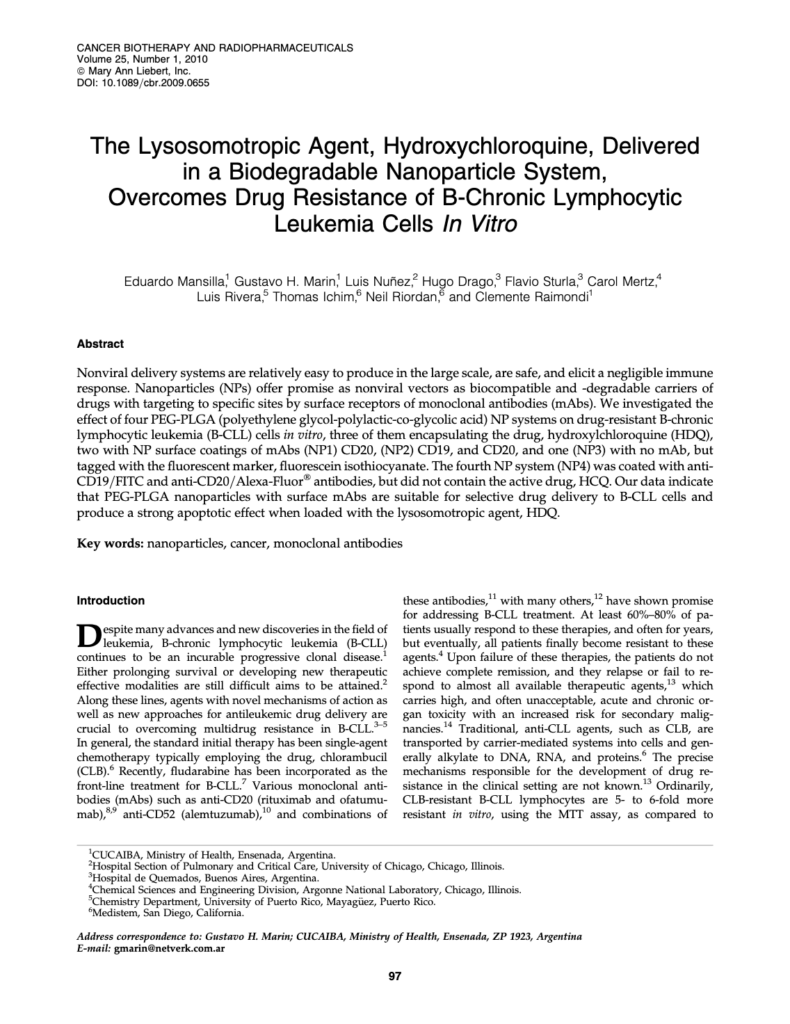February 2010
The lysosomotropic agent, hydroxychloroquine, delivered in a biodegradable nanoparticle system, overcomes drug resistance of B-chronic lymphocytic leukemia cells in vitro.
Journal Citation
Cancer Biother Radiopharm. 2010 Feb;25(1):97-103
Authors
Mansilla E, Marin GH, Nuñez L, Drago H, Sturla F, Mertz C, Rivera L, Ichim T, Riordan N, Raimondi C.
Abstract
Nonviral delivery systems are relatively easy to produce in the large scale, are safe, and elicit a negligible immune response. Nanoparticles (NPs) offer promise as nonviral vectors as biocompatible and -degradable carriers of drugs with targeting to specific sites by surface receptors of monoclonal antibodies (mAbs). We investigated the effect of four PEG-PLGA (polyethylene glycol-polylactic-co-glycolic acid) NP systems on drug-resistant B-chronic lymphocytic leukemia (B-CLL) cells in vitro, three of them encapsulating the drug, hydroxylchloroquine (HDQ), two with NP surface coatings of mAbs (NP1) CD20, (NP2) CD19, and CD20, and one (NP3) with no mAb, but tagged with the fluorescent marker, fluorescein isothiocyanate. The fourth NP system (NP4) was coated with anti-CD19/FITC and anti-CD20/Alexa-Fluor((R)) antibodies, but did not contain the active drug, HCQ. Our data indicate that PEG-PLGA nanoparticles with surface mAbs are suitable for selective drug delivery to B-CLL cells and produce a strong apoptotic effect when loaded with the lysosomotropic agent, HDQ.

